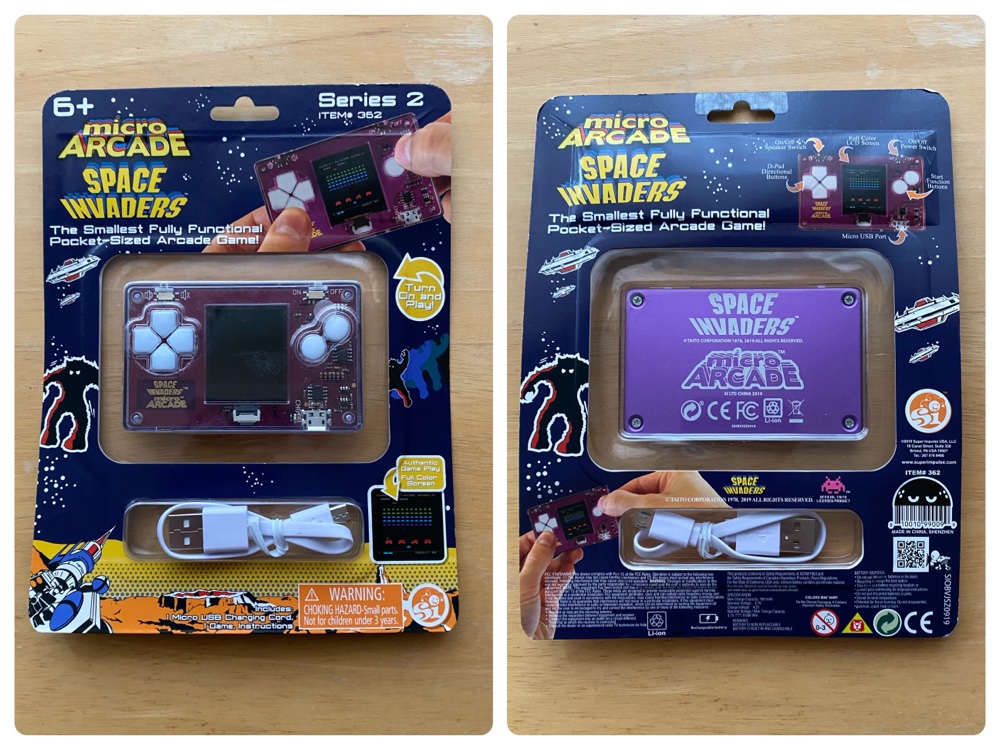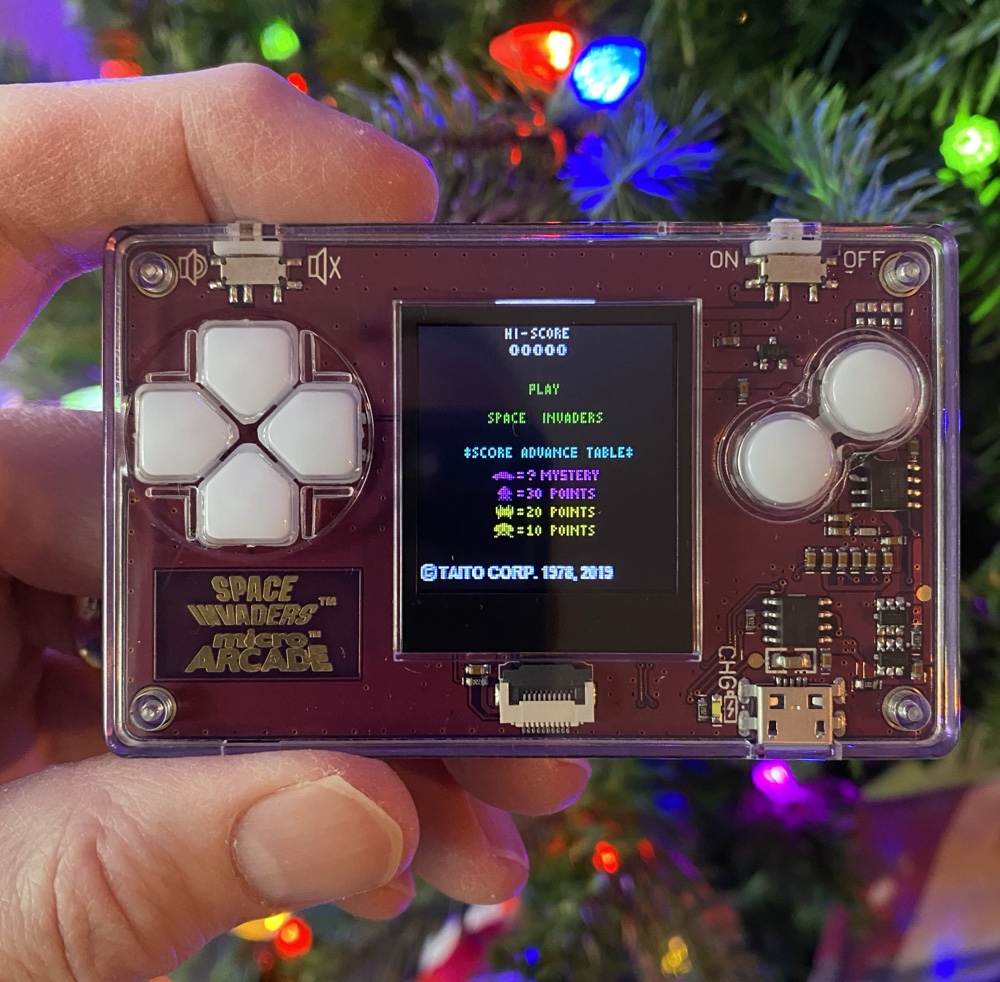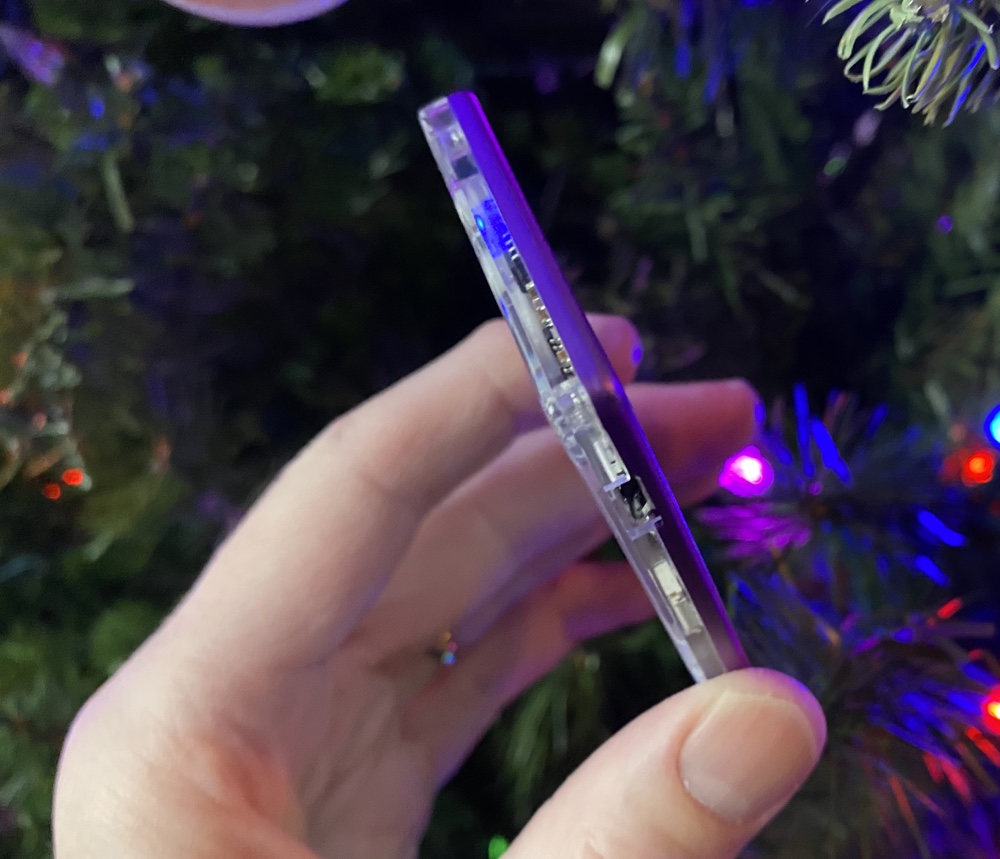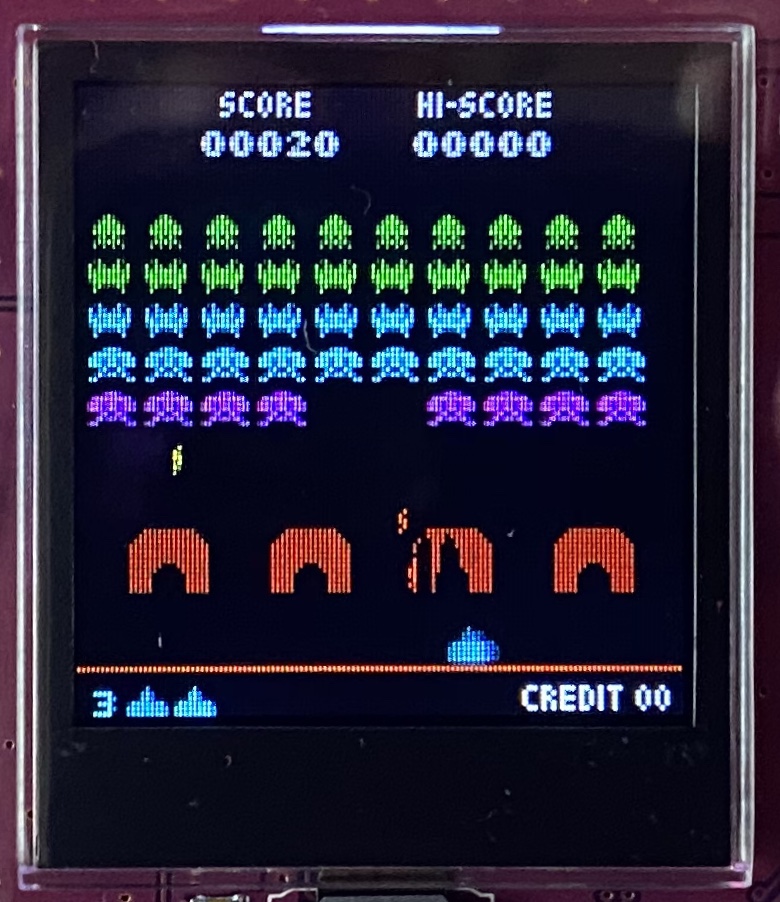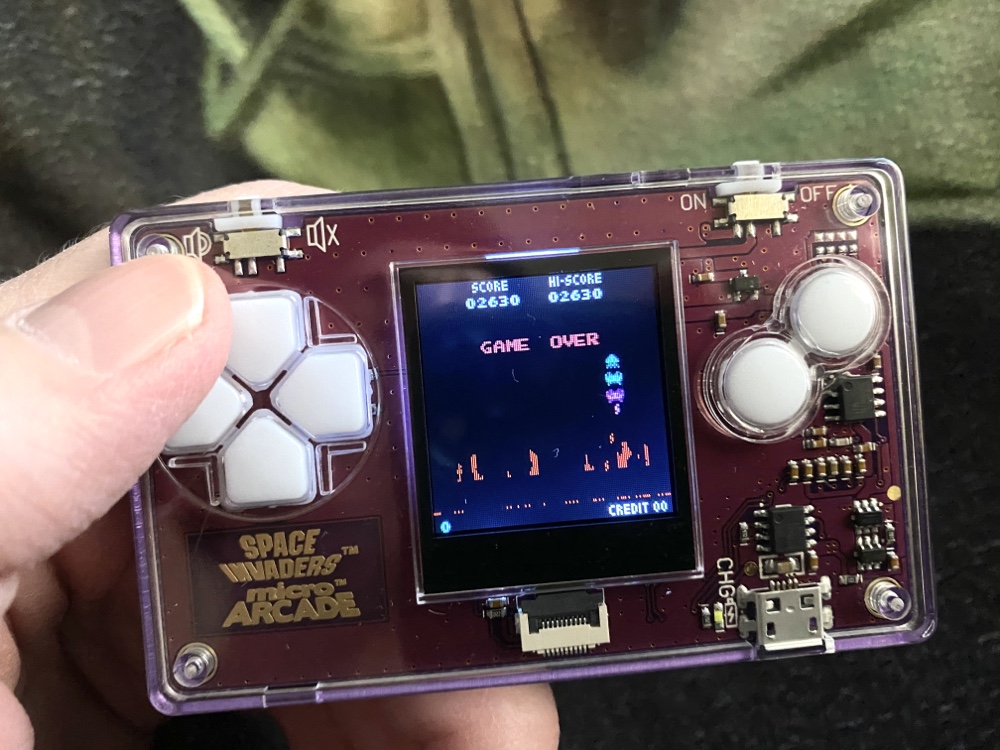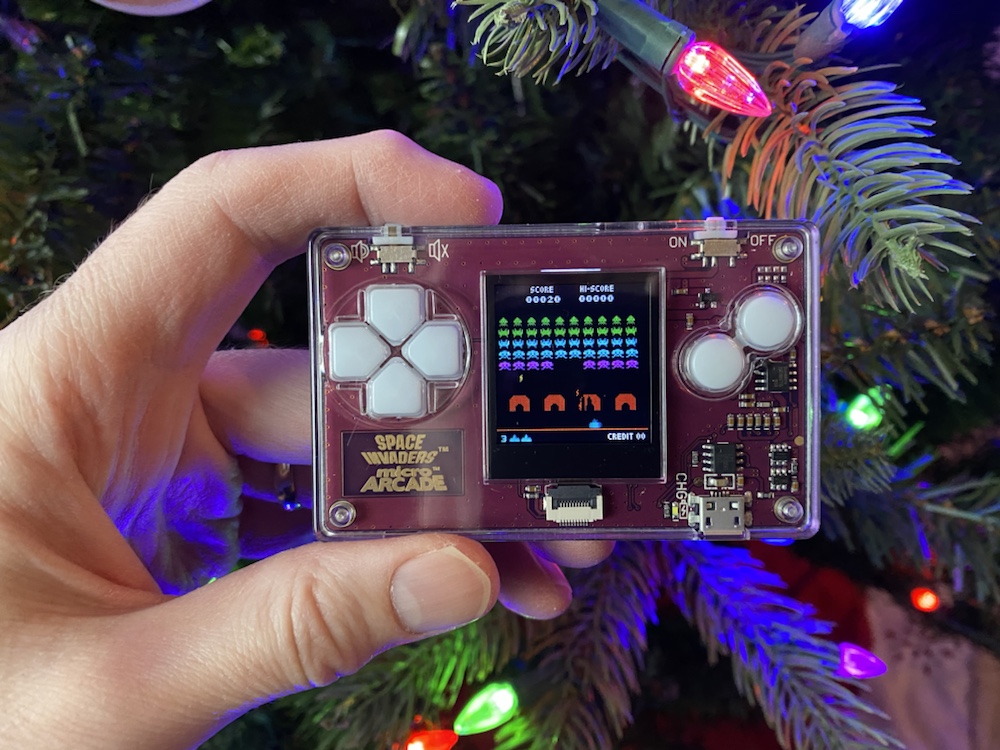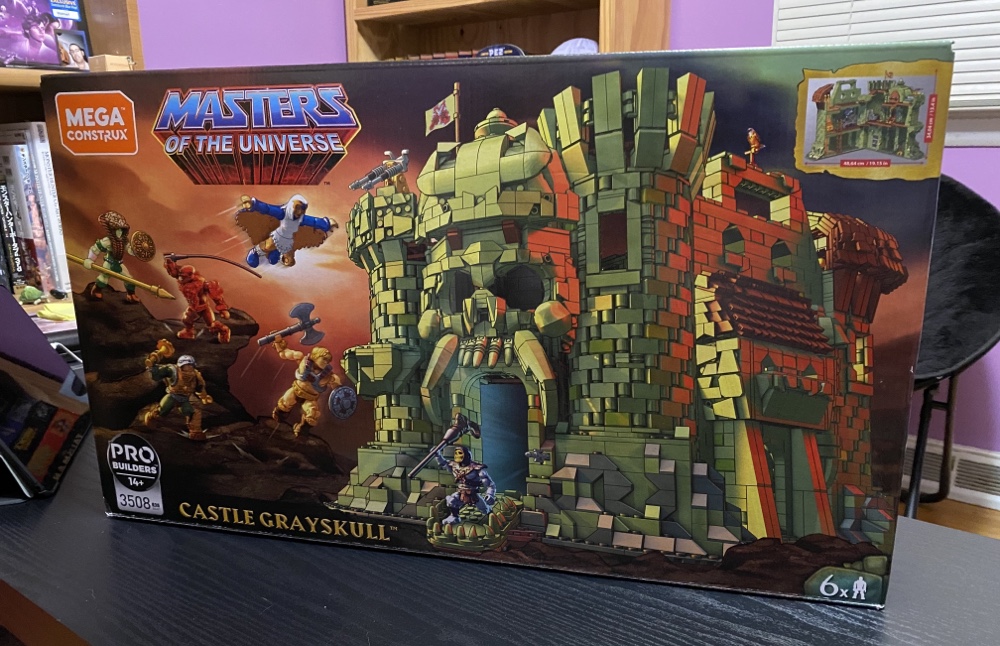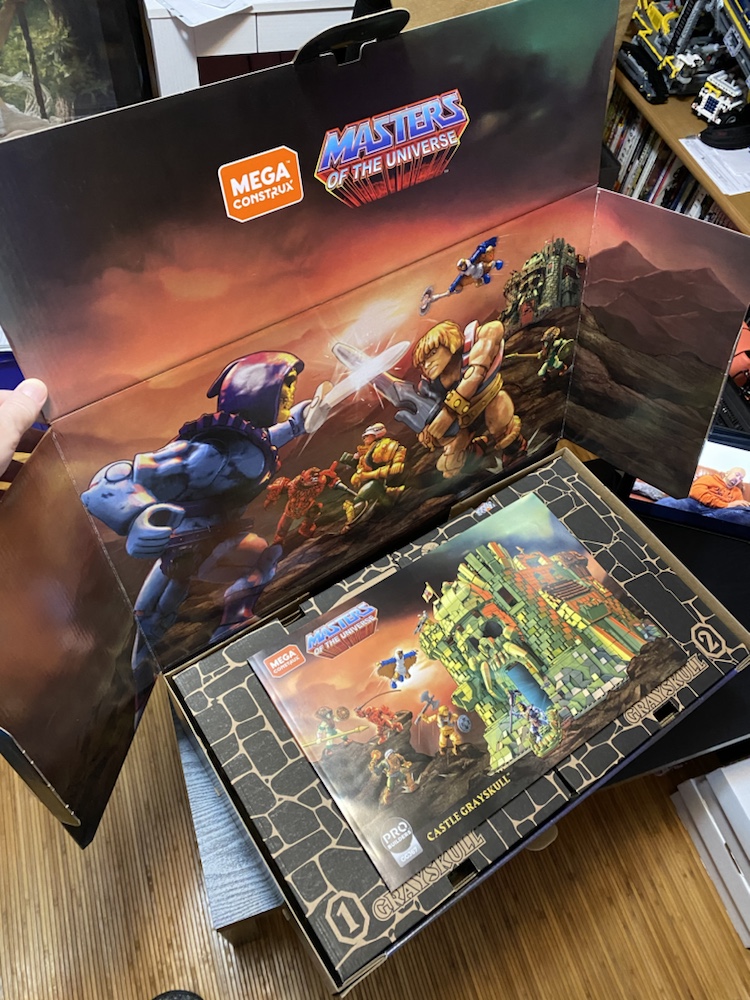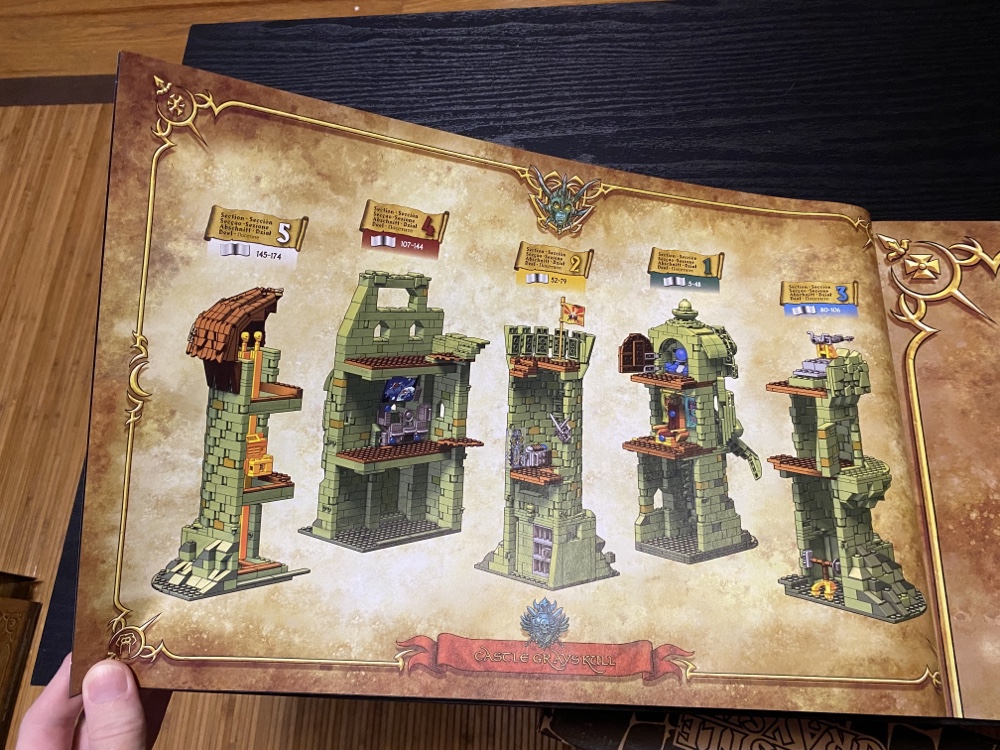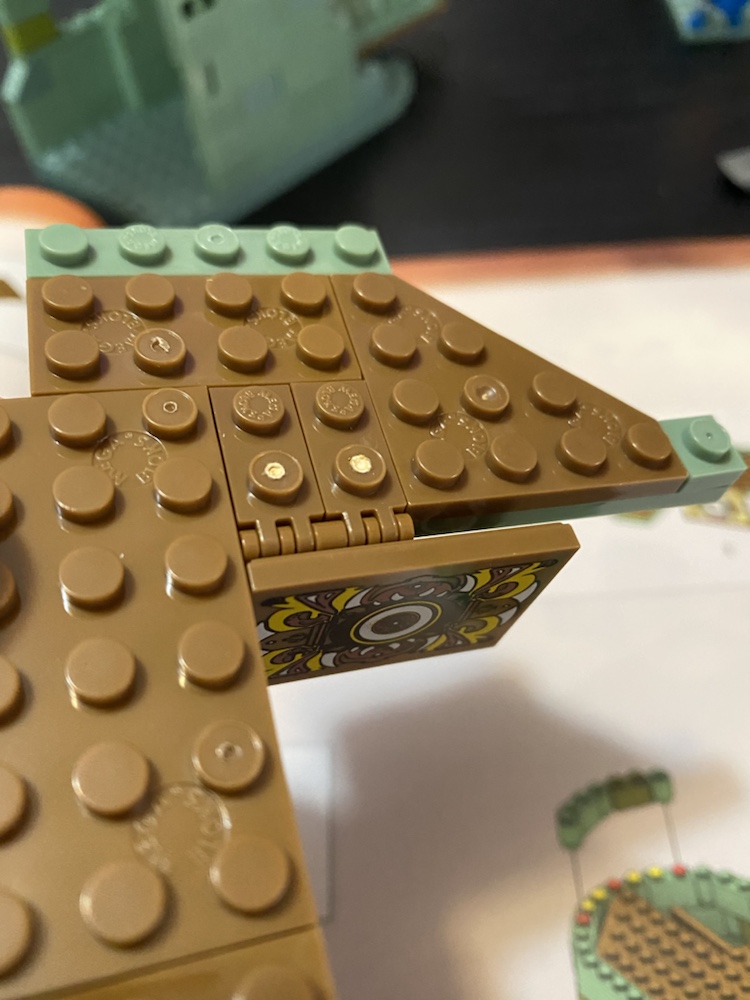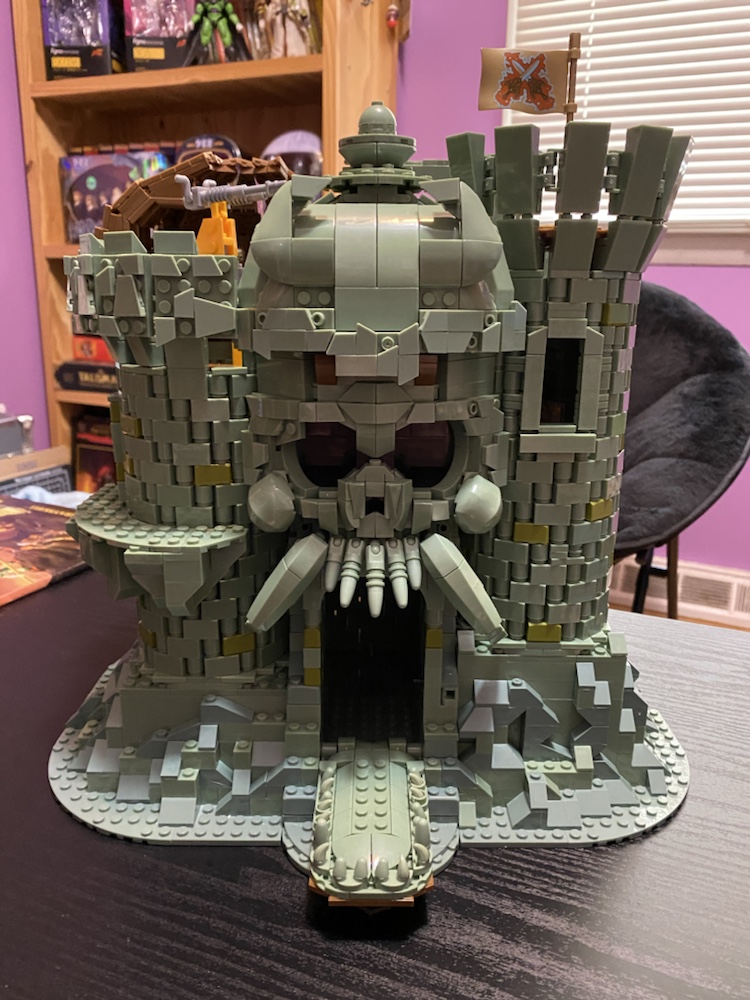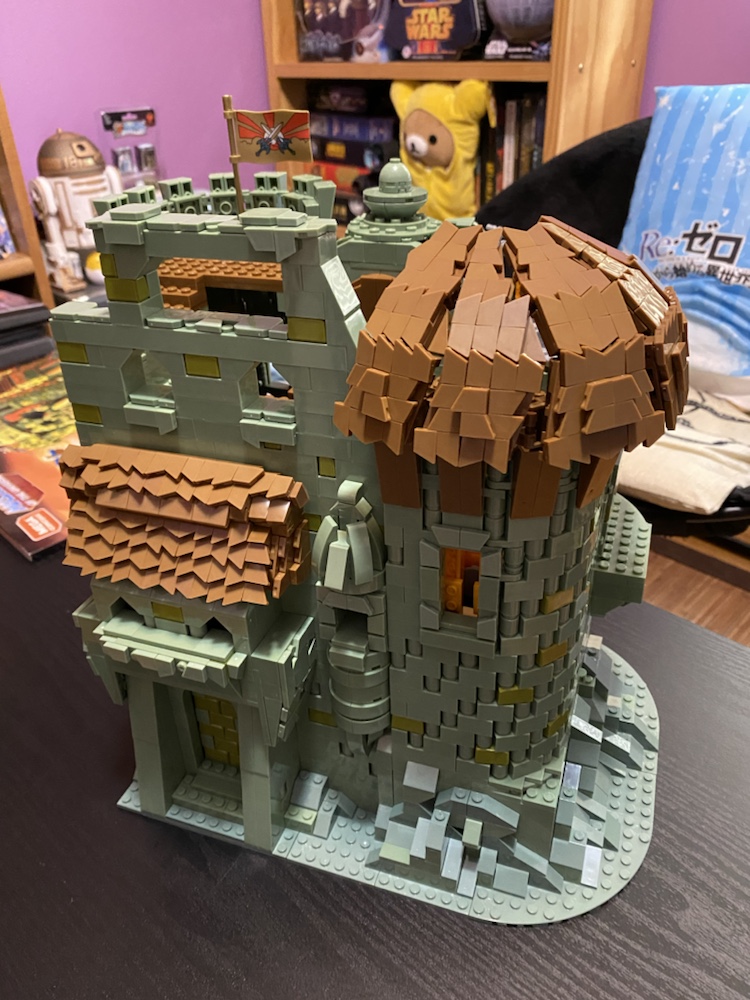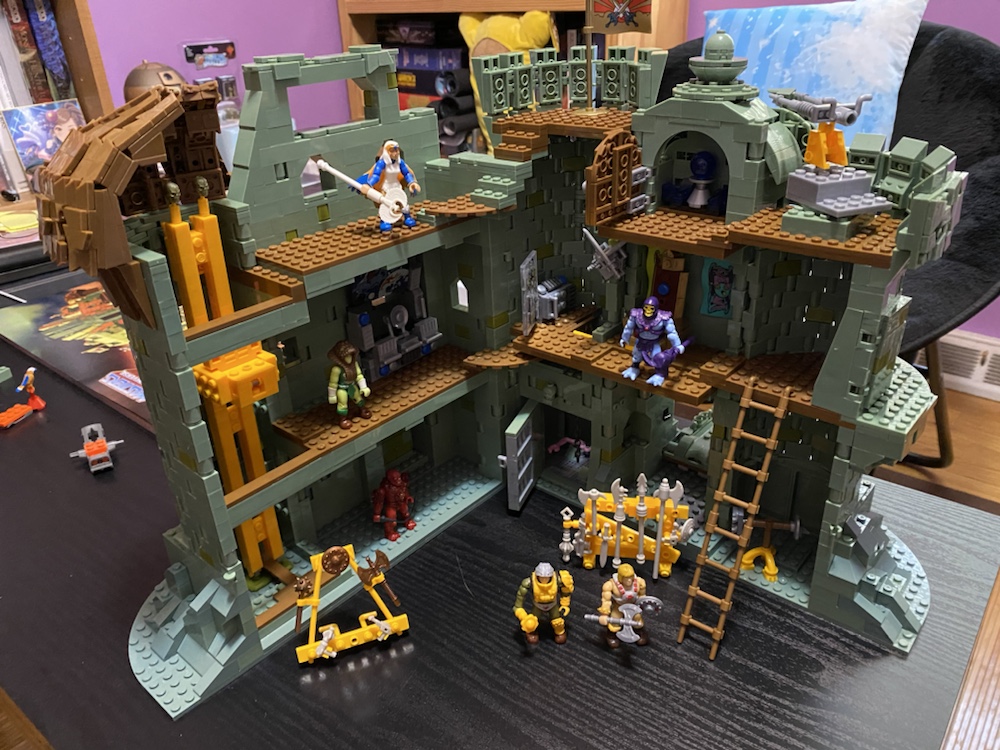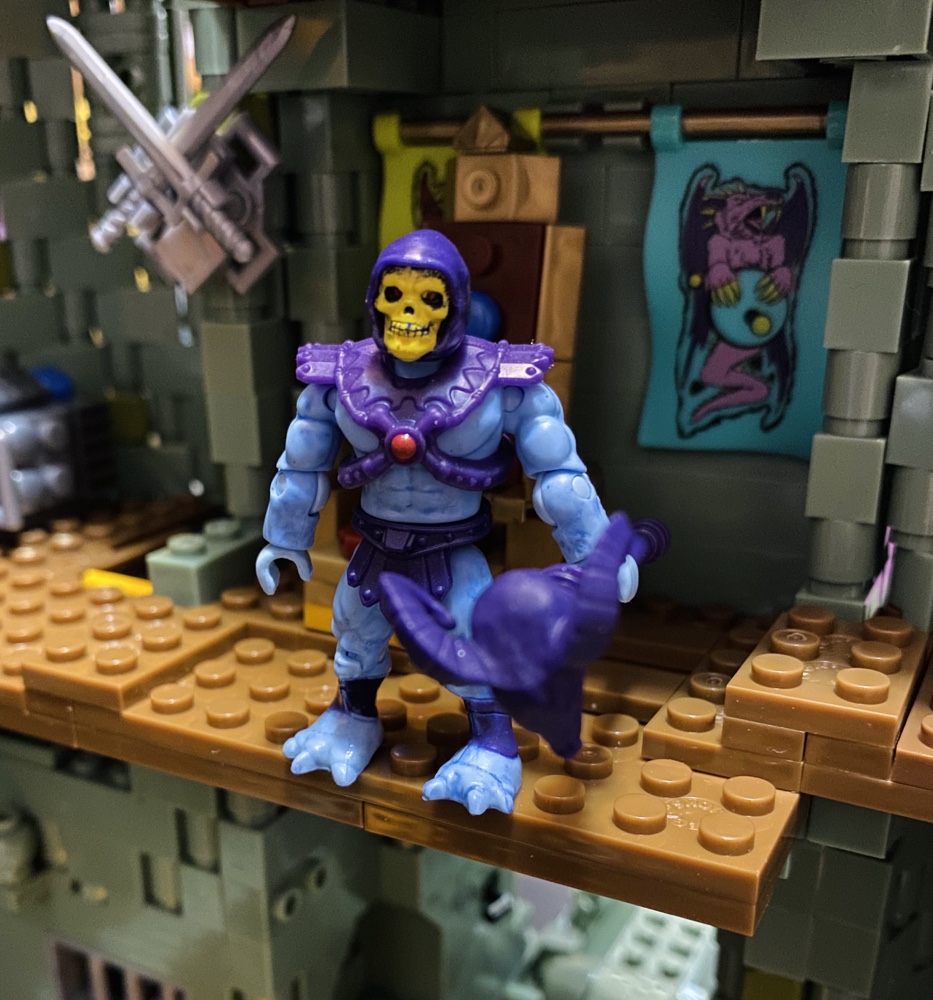A bit of a change for this post: rather than showcase a particular console collection this time I’m focusing on an entire game series. Here then, all my Wizardry games.
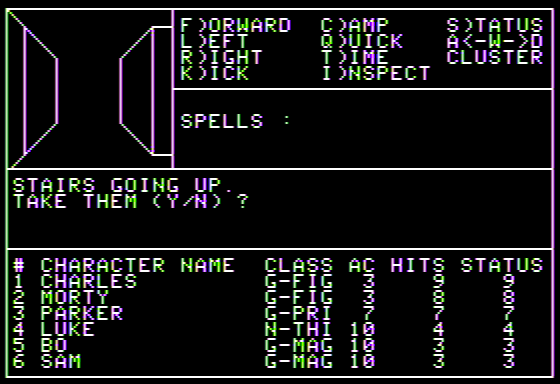
Wizardry was first released in 1981 for the Apple II and would in time be ported to a massive amount of different systems. I recall first playing it on an Apple computer at Charlestown library and falling in love immediately. Here was Dungeons & Dragons and Fighting Fantasy in game form!
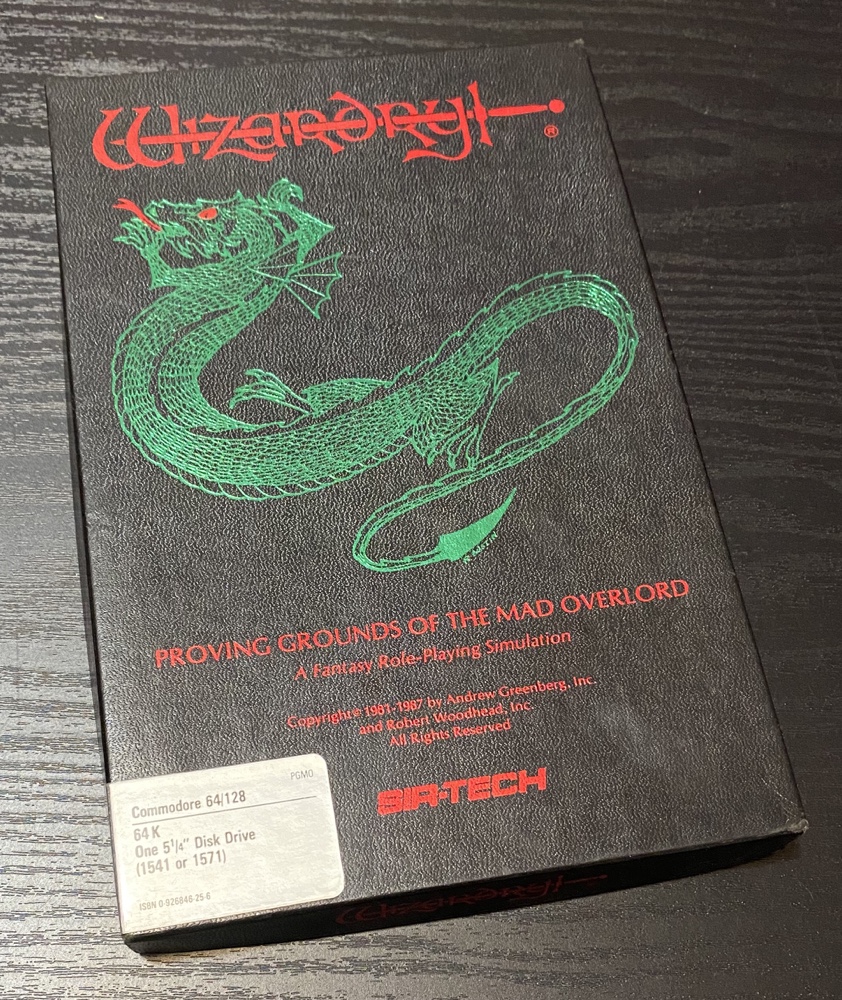
The first Wizardry game I owned was the one shown above (which I rebought recently: read about it here) for the C64. I played through a few in the series on the C64 and when Bernard bought a PC I quickly bought and played the newest editions (Wizardry 6 and 7) upon release. I was mad for them!
But even though Wizardry has also been released on consoles I had no idea at the time, and wouldn’t play a console installment until I came to America. Neither did I know the series had a vibrant life in Japan – even more so than in its home country – and it was many years before I started playing Japanese versions.
Here I’ll present the games in my collection in more or less release order, and not the order in which I obtained or played them.
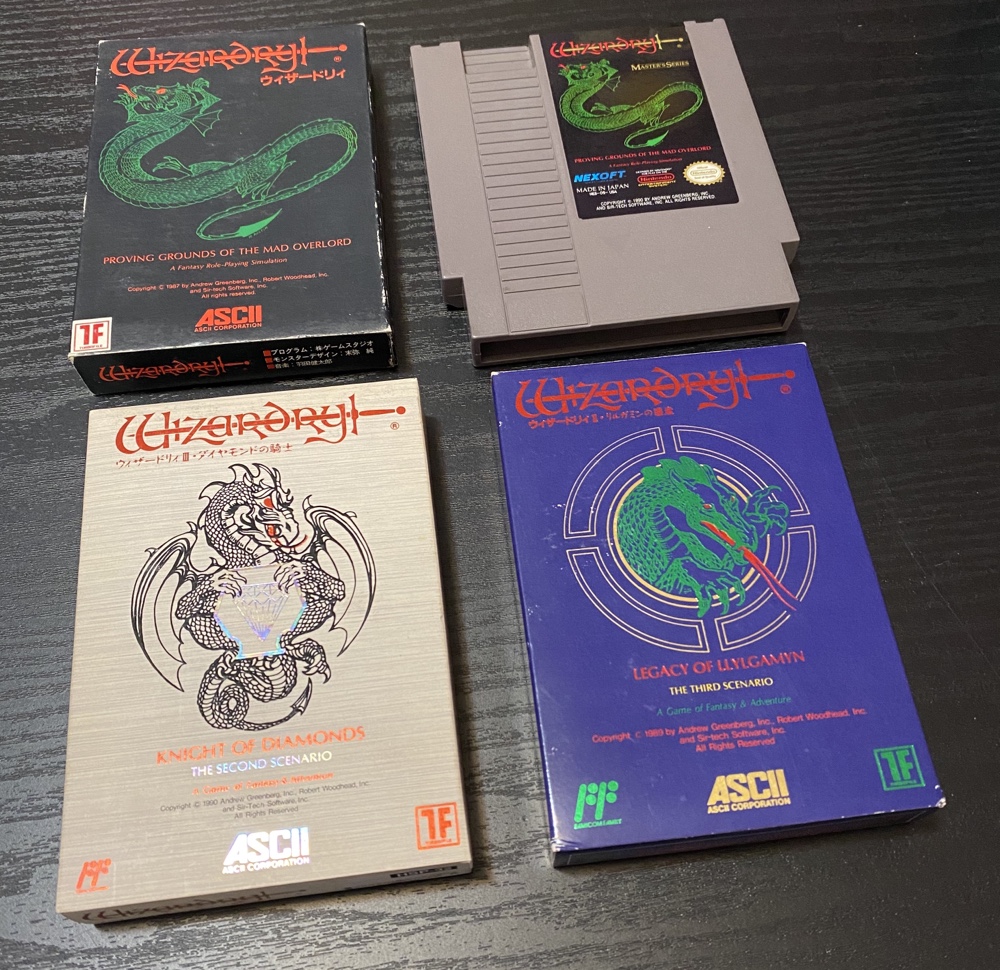
Those are the three NES/Famicom installments, which are ports of Proving Grounds Of The Mad Overlord, Knight of Diamonds and Legacy of Llygamyn (aka. Wizardry 1, 2 and 3). As you can see I have the three Japanese releases and only the cart of the US release of Wiz 1. The second game was released here but I’ve never seen it for sale, and the third never got localized (yes these were all Japanese games localized for the US since even by this point Wiz was bigger in Japan).
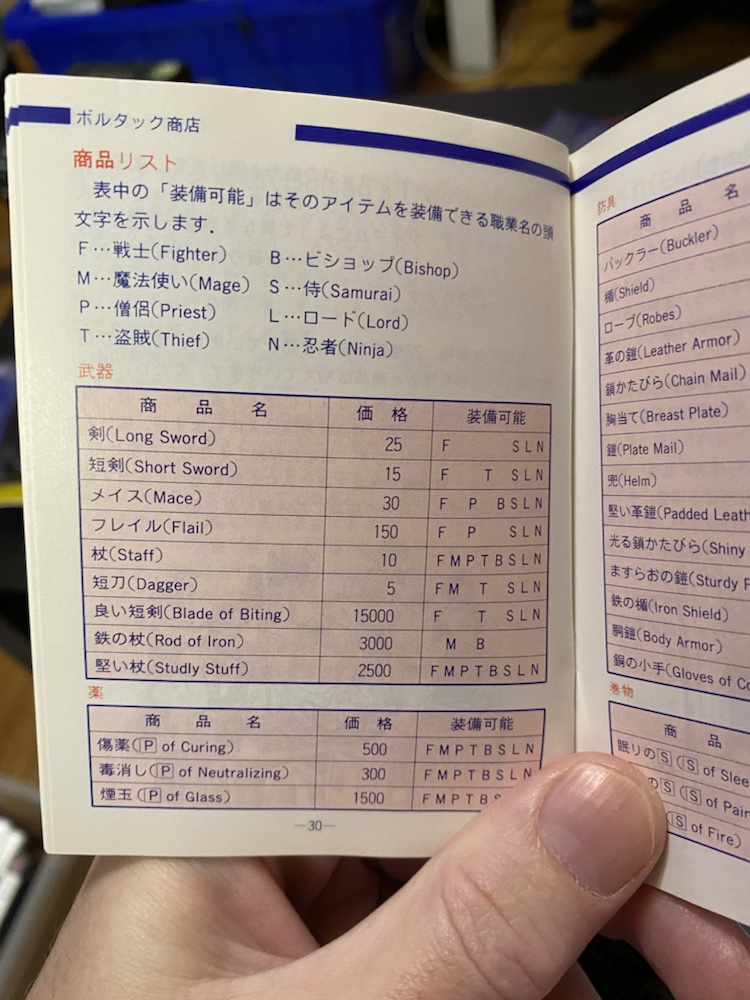
These are direct ports of the Apple originals and this is evidenced by the instructions. I have read some of the more USA-centric references (like pop culture puns) were removed to better appeal to the Japanese players, and as time went on their games would get darker and develop their own style whilst retaining the systems of the parent series.
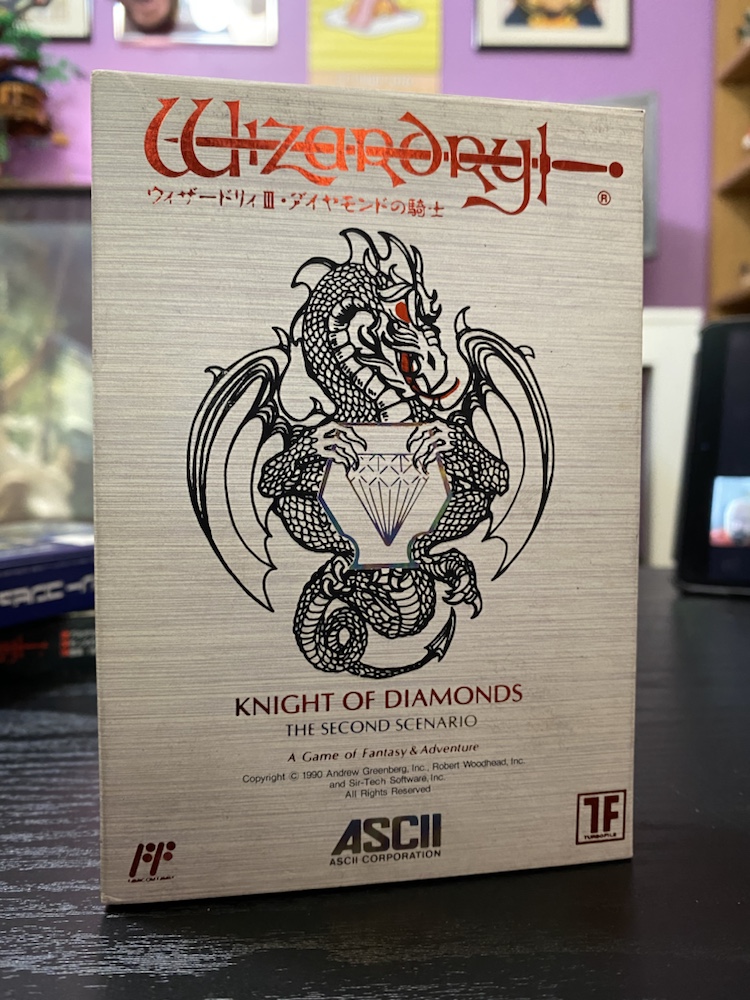
The presentation of these is beautiful, with metallic inks on the boxes and large (over 50 page) detailed manuals. Unfortunately I can’t play the Famicom carts since they don’t work on an NES. One of these days I should buy a Famicom…
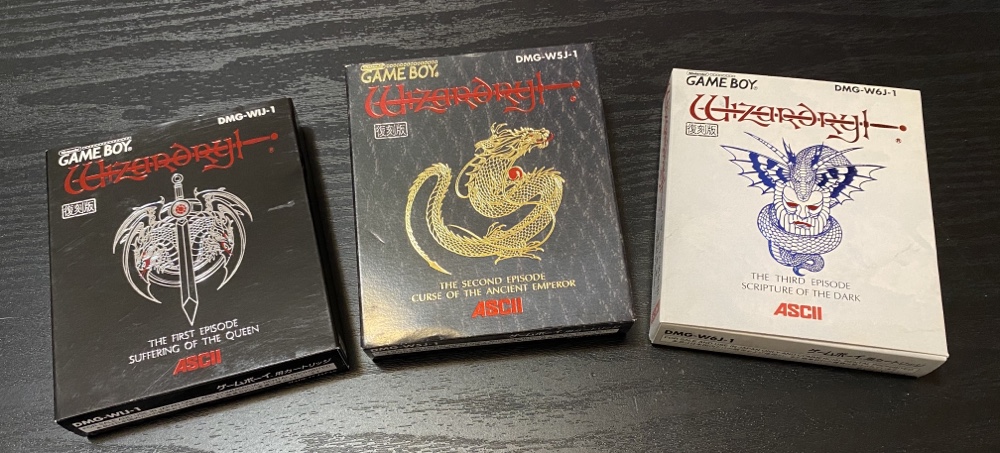
These are the three Japanese Game Boy Wizardry games and you can see they’ve deviated from the original series into a spin-off series called Wizardry Gaiden. These are amongst the most prized items in my game collection: they are in pristine condition, are beautiful and fully complete including the massive manuals and the trading cards:
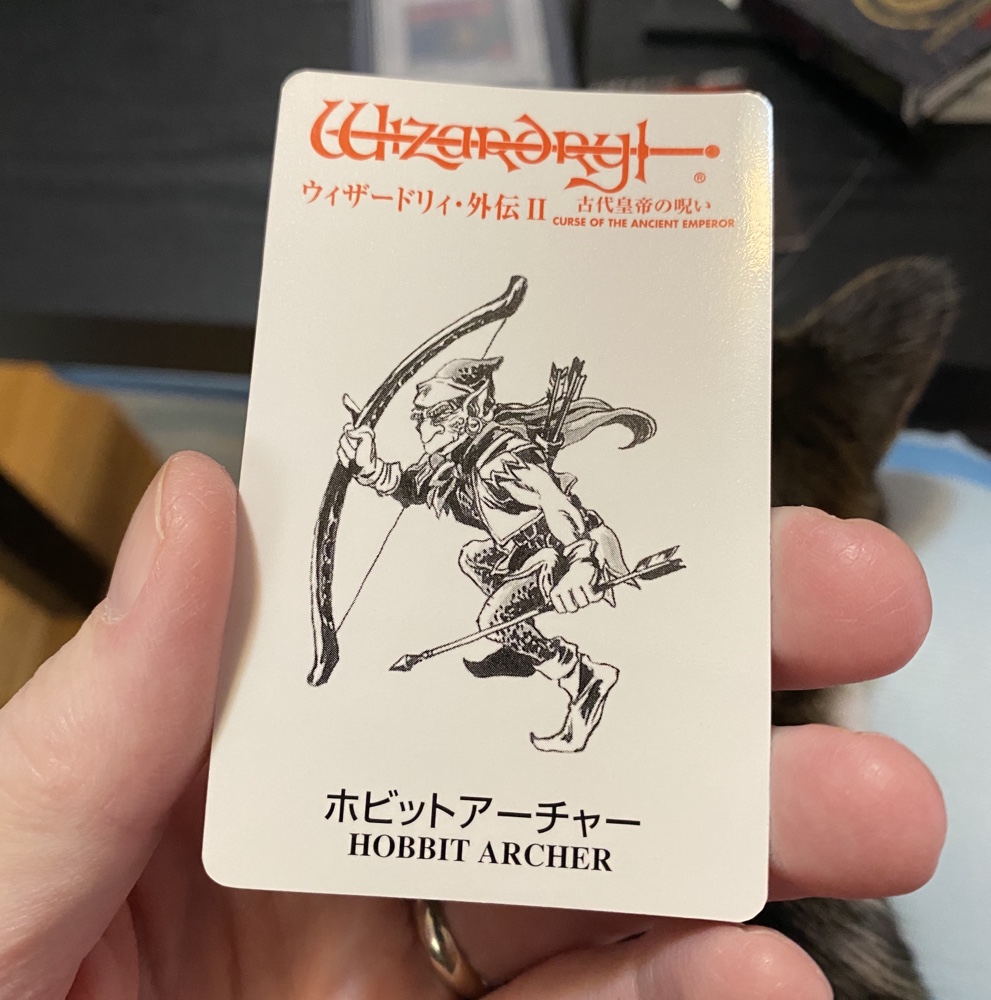
These cards could be a blog post unto themselves! For many years Japanese Wizardry games came with a trading card randomly chosen from a set unique to that release. Collecting these must have been almost impossible since there’s so many of them, and when it comes to buying the games used in Japanese retro shops the versions that still include cards go for a king’s ransom indeed!
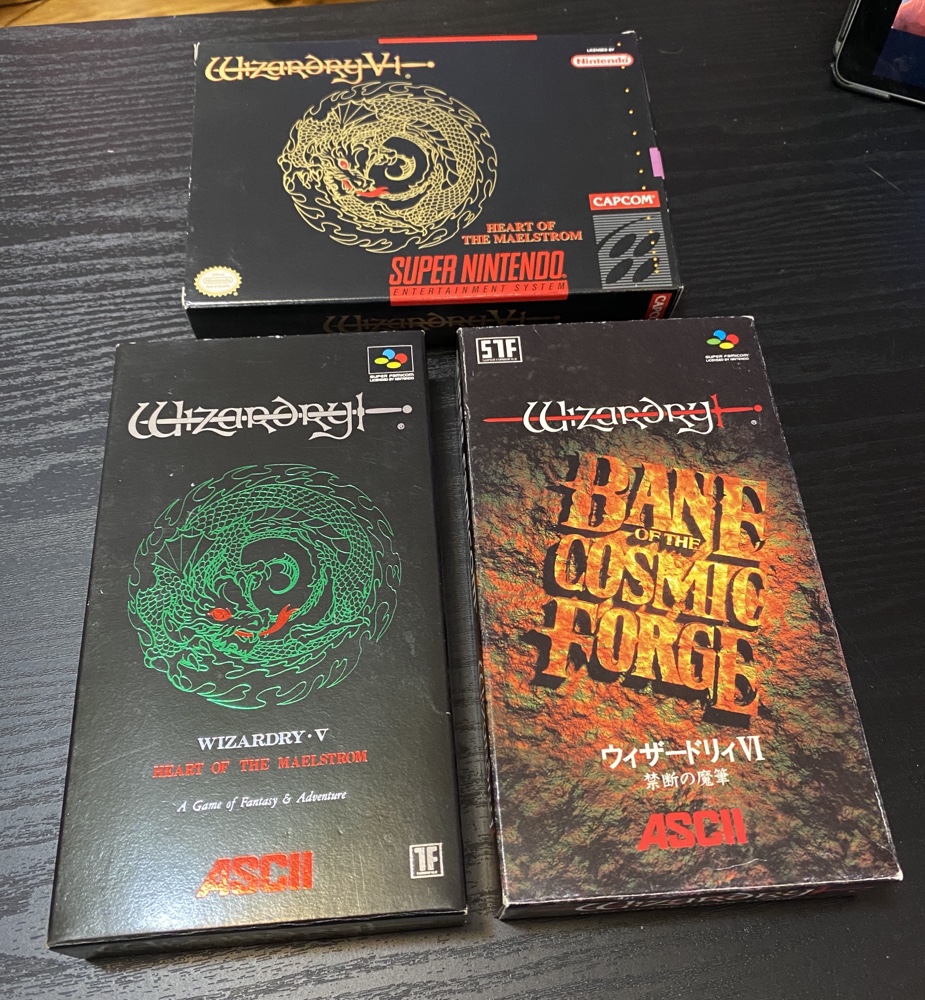
Moving into the SNES/Super Famicom era I’ve got the above: versions of Wiz 5 and 6. Heart Of The Maelstrom is a fantastic game on the SNES and I’ve always been meaning to replay it.
There are other SNES Super Famicom installments as well, including the fourth Gaiden game and a port of Wiz 1 through 3 that was purchased at a kiosk and written onto a rewritable cartridge! Obtaining these games today would require very deep pockets.
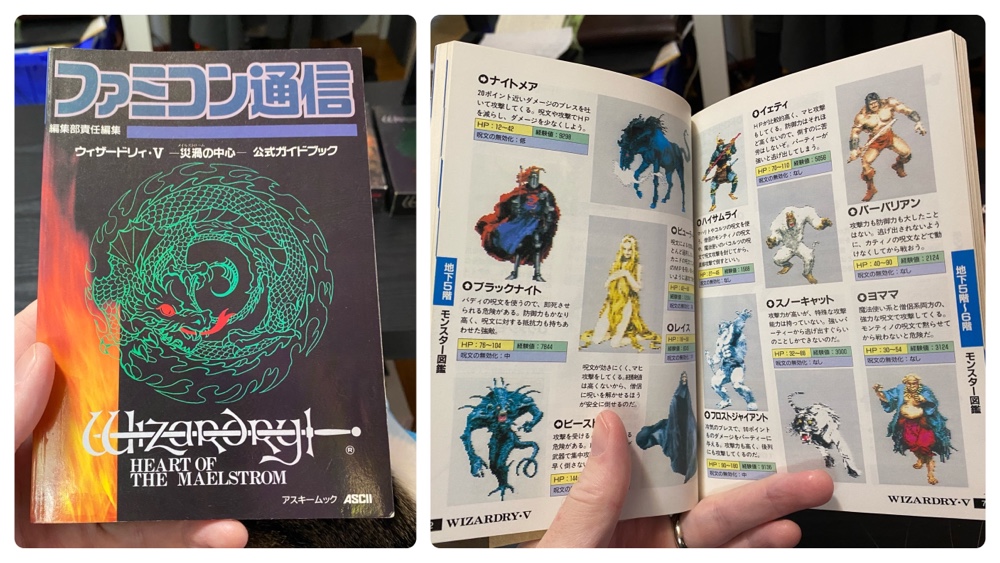
The above item is interesting: my Japanese hint guide to Wizardry 5 for SNES. When I play it again you’ll bet I’ll be using that for assistance!
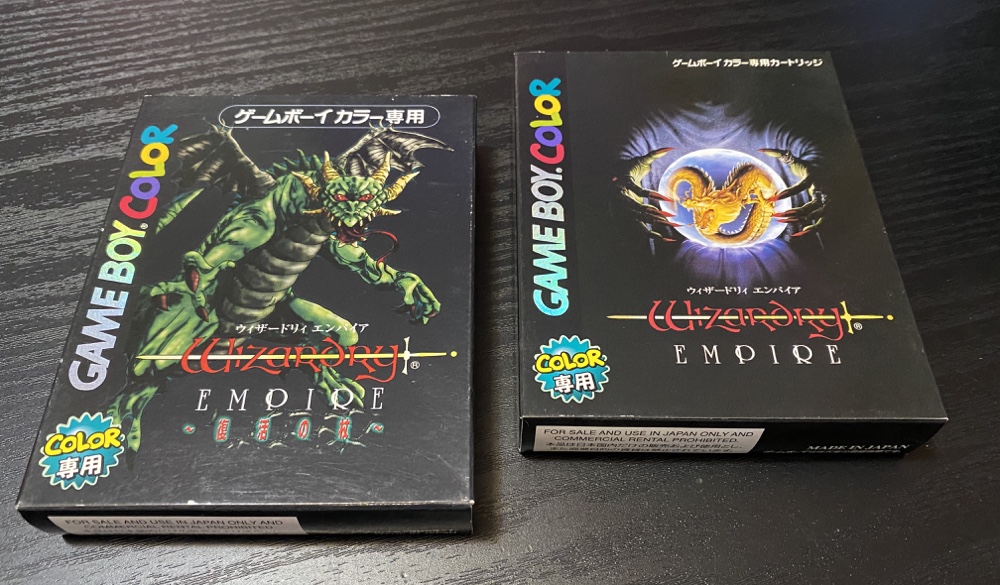
I have two of the Wizardry Empire series on GBC, and this system has more installments as well that are too expensive for me (I saw two for over $200 each in a JP retro shop). The Empire games are derived from the Gaiden series (which itself was a spinoff from Wizardry 5) and included some interesting additions such as requiring certain items to switch to specific classes. These are lovely games that I must get around to playing in full one day…
Speaking of high prices a special mention here for the Wonderswan version of Wizardry 1, which is one of the rarest and most collectible games on the system. If you’ve got $400+ gathering dust, why not buy it for me?
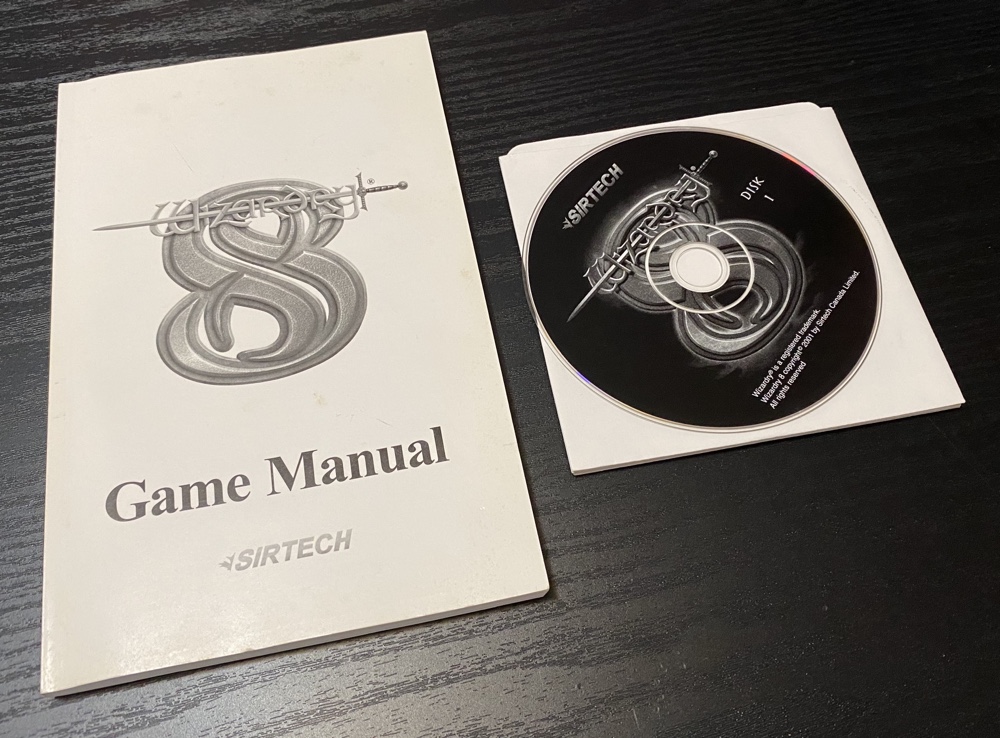
Here’s an oddity: the PC version (sans box) of the last US Wizardry game. I bought and played this myself when it was released in 2001, and recall thinking it was quite a good game in it’s day (these are my original discs). The game was not a success, and more or less killed the series on these shores.
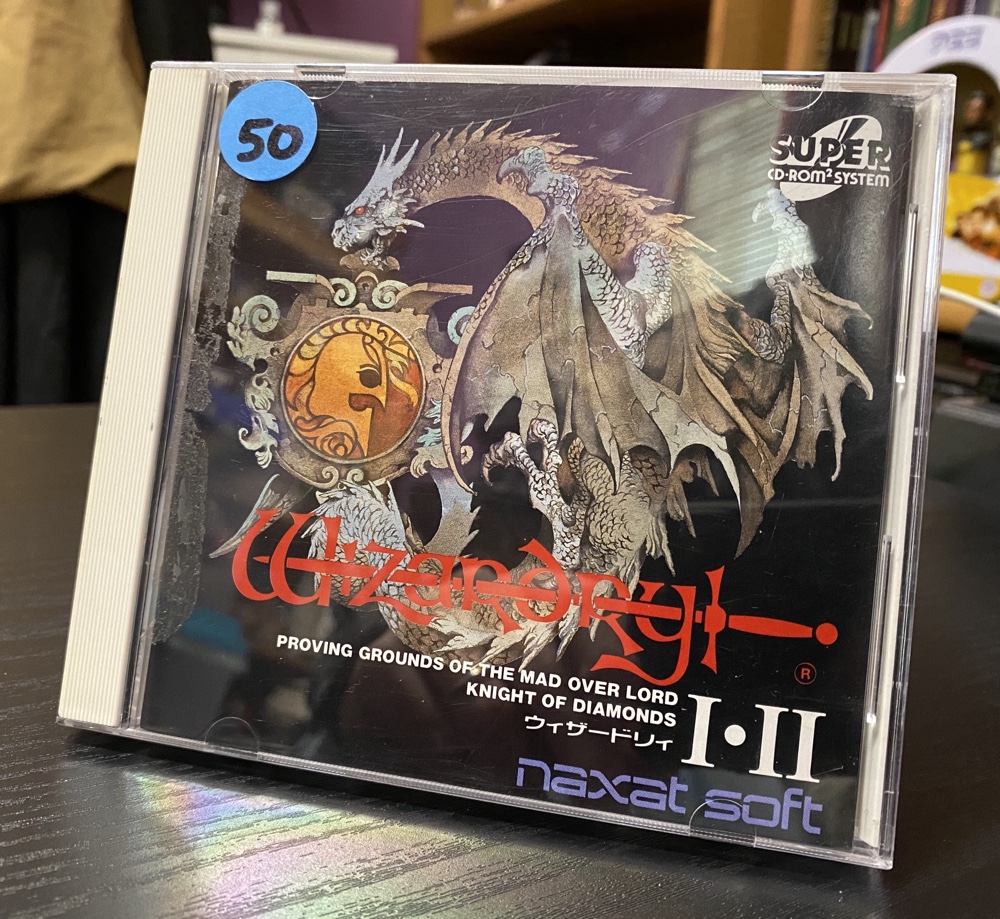
There were several installments on the PC-Engine including direct ports of the first 6 games in the main series. I’ve got the above version which includes games 1 and 2. I’ll never play this since I don’t own a PCE or the CD attachment, which is a shame since a look at the robust manual shows the games are entirely in English!
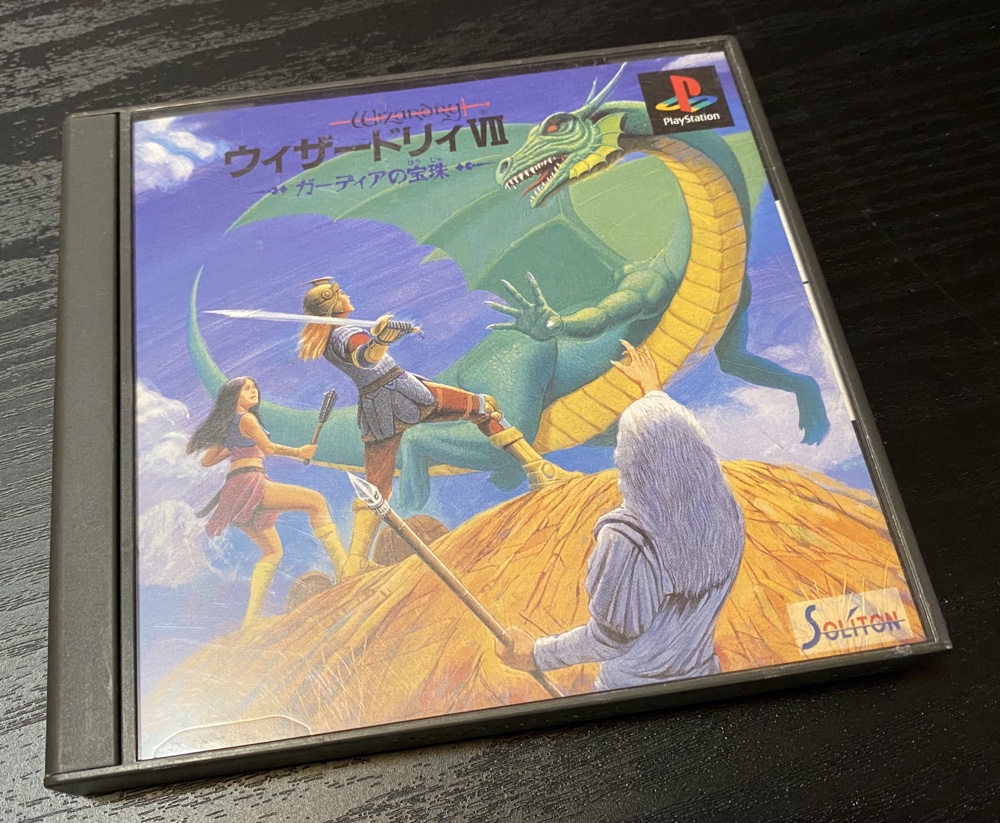
The original PlayStation saw many different Wizardry installments, including another Gaiden sequel, a game called Wizardry Dimgul and a few ports of the original games including the one I own, Crusaders Of The Dark Savant (Wiz 7)! It’s nicely presented and even comes with a map:
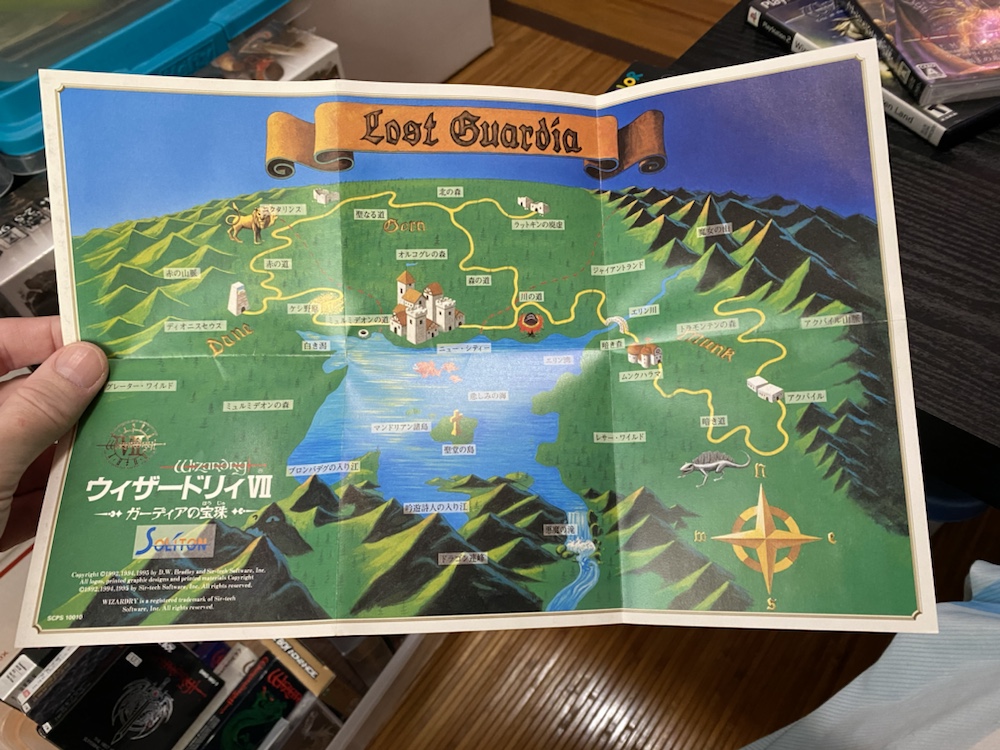
Alas it’s apparently poorly coded and very slow to play, which is a shame.
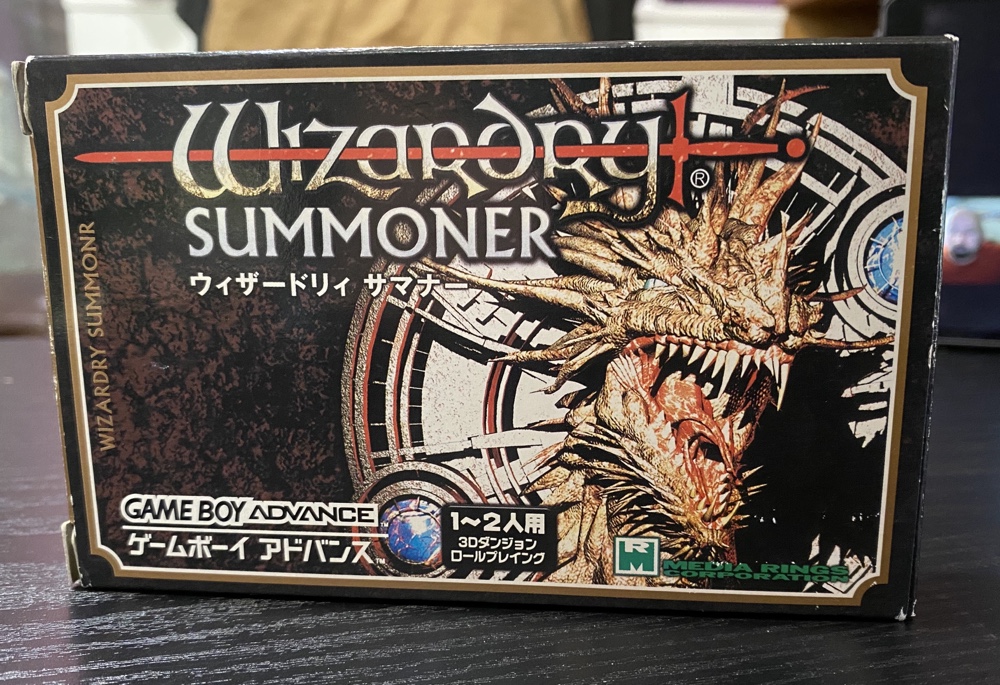
Strangely there was only one ever GBA Wizardry game which I bought during our first trip to Japan (in 2002). I played through and beat it thanks to some translation assistance from Adam’s sister: thanks Amber!
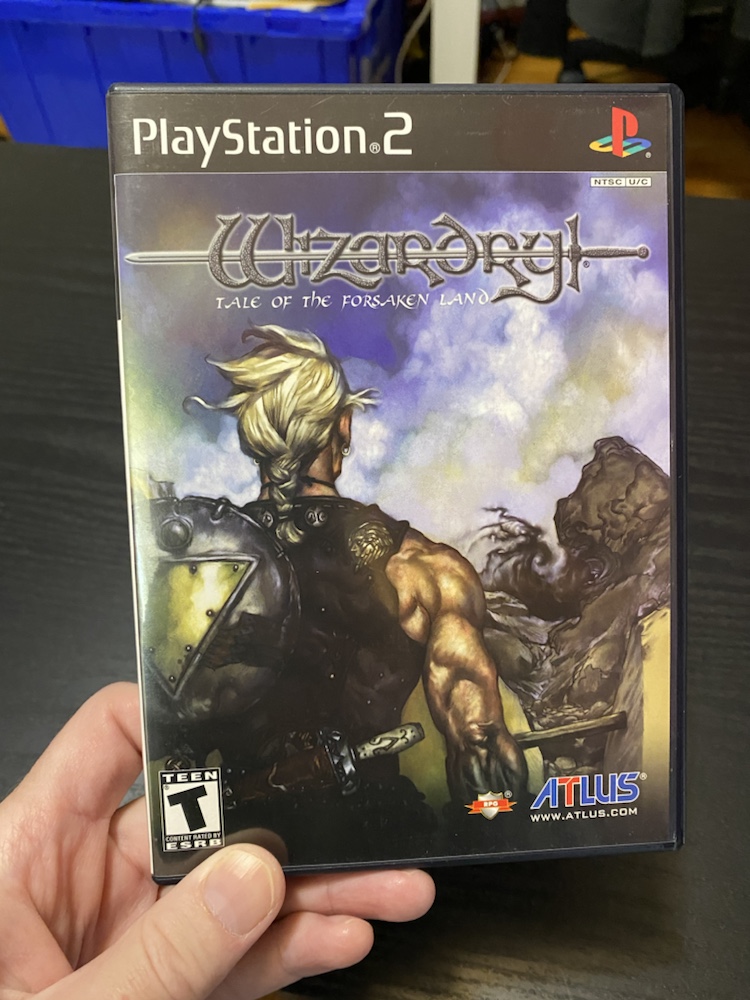
The above is the last physical Wizardry release in the USA, for PS2 back in 2002. It’s a fantastic game with beautiful graphics and the expected difficulty and I devoured it when it came out. Japan had many sequels to this game, but none made it stateside.
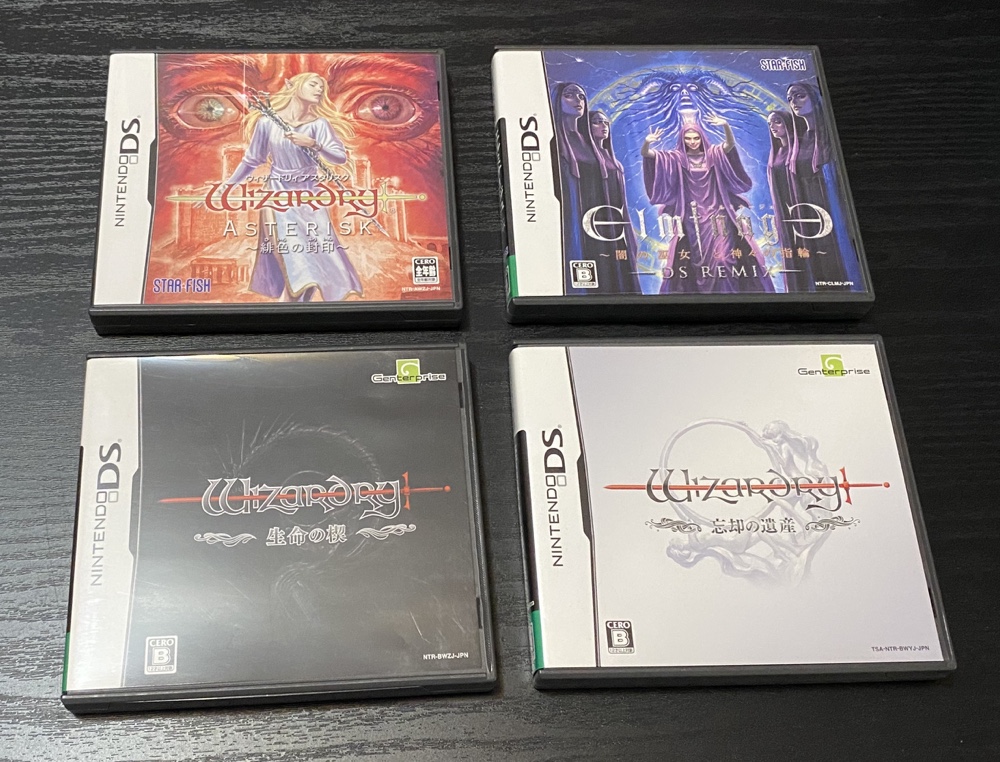
The above DS games – again, all Japanese – are installments in the ‘Wizardry renaissance’ that occurred after the original parent company (Sir Tech) went out of business. By now Wizardry as a series had been well and truly claimed by Japan and US releases weren’t even considered. Wizardry Asterisk was a remake of Wizardry 1, and the two games at the bottom (both limited run amazon exclusives) were a self-contained two game series (called Wizardry Semei no Kusabi and Wizardry Bokyaku no Isan) that I paid quite a bit for. They have wonderful graphics and I really should play both…
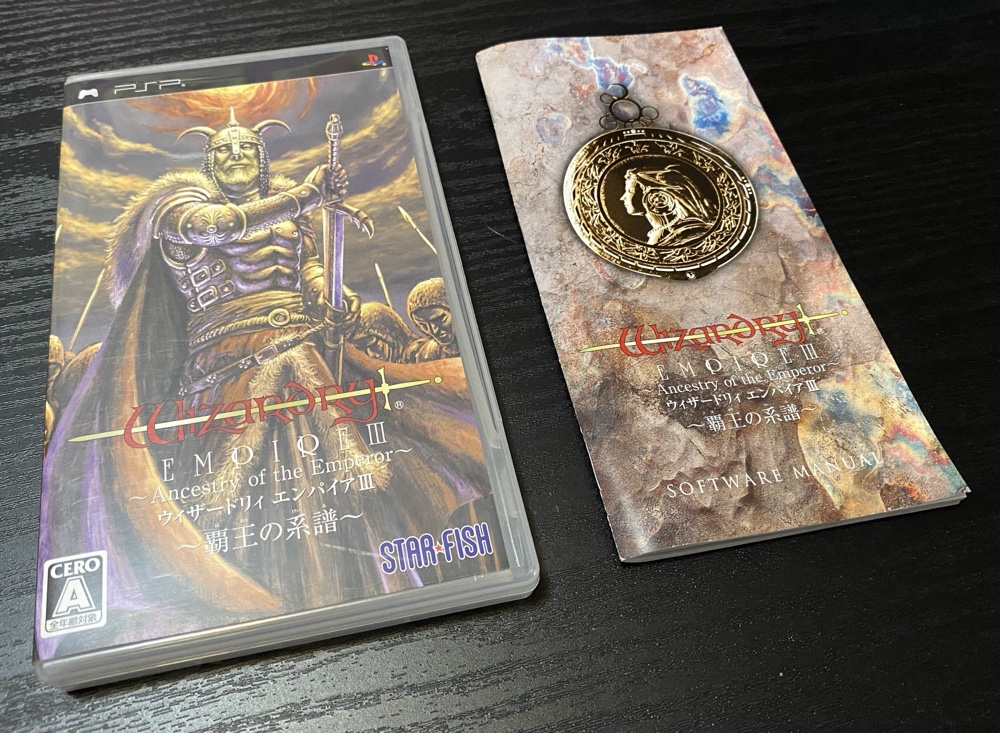
The above is the PSP port of the fifth game in the empire series (confusingly named Empire III) that I bought several years back in Japan for the most I’ve ever paid for a game (about $100). I recall struggling to play it though, since it has no English and is such an unknown game I could find barely any help on the internet. Maybe I’ll try again one day?
Incidentally I’ve since seen this game selling for considerably more than I paid, so I assume it’s very rare.
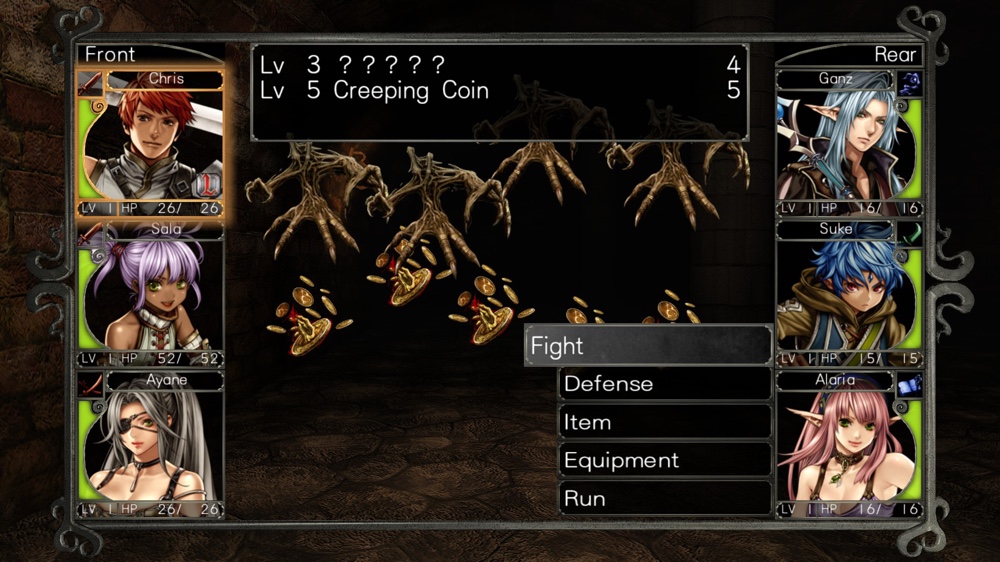
In 2011 the final true Wizardry game to be released in the US came out as a digital only game for PS3. Naturally I bought and played it and you can read about it here. As a digital only game for a now obsolete console it basically isn’t playable any more which is a shame. I wish the disc version (which came out in Japan) had been released here.
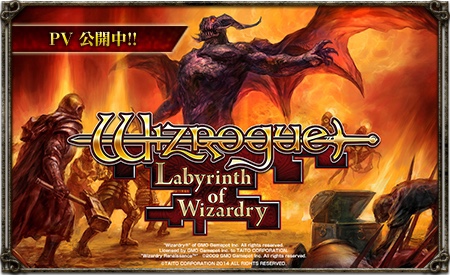
As I’ve mentioned there are many other Wizardry games that were released in Japan for consoles, Japanese computers (like the PCFX or X68000) and for mobile systems (including a gatcha roguelike which was ported to PC and may even still be on Steam). They even nearly made an IC-card based Wizardry arcade game!
The game has even inspired or directly led to numerous closely related spinoff series (mostly for PSVita) including Class Of Heroes (essentially Wizardry done anime-style; the code apparently calls the game Wizardry 8!), the Operation Abyss series and the Sword City series. Happily most of these were localized and I’ve beaten them all and could easily do an entire post on PSVita Wizardry derivatives!
But even in Japan it’s now been many years since any true Wizardry game saw a physical release, and I suspect there may never again be one. My collection is somewhat complete but has some notable omissions that I’ll always be keeping an eye open for, and I’m already looking forward to the next time I can spend a day browsing the retro shops in Japan looking for a new (old!) game I don’t yet own!
And I swear I’ll play them all one day 🙂
